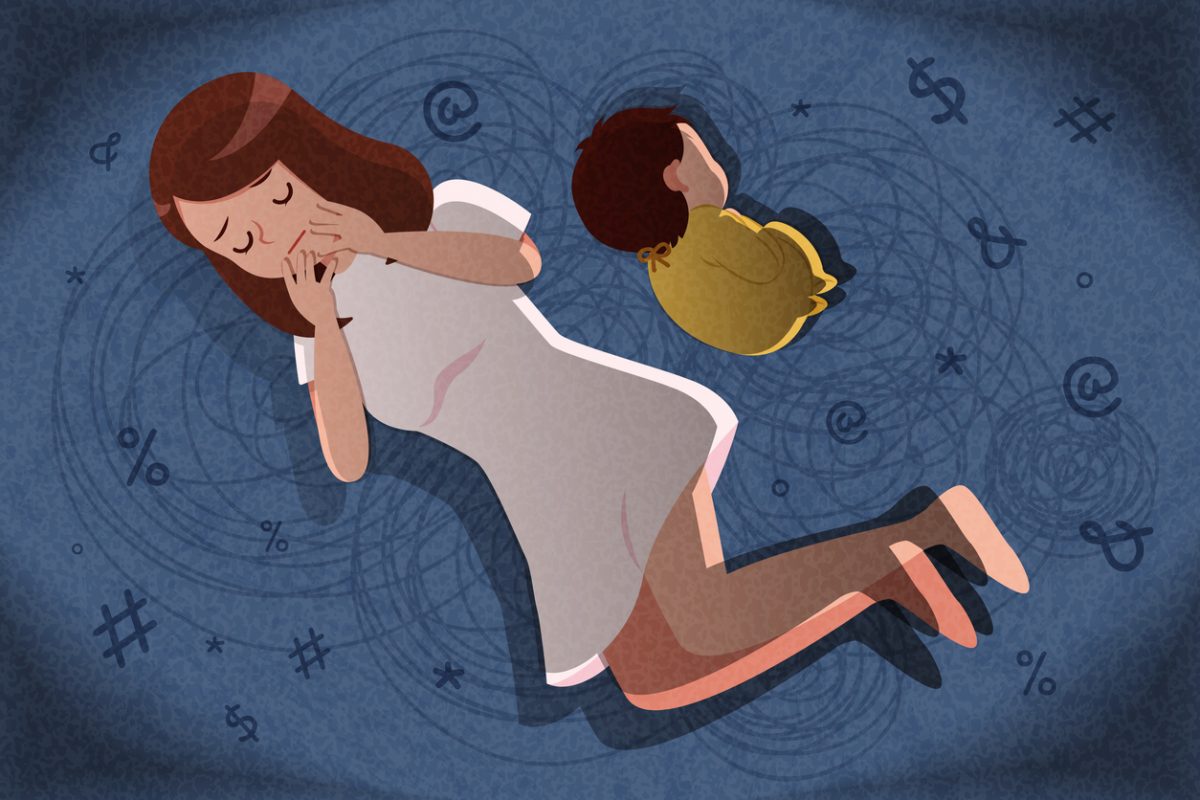
Ovarian Stimulation for Infertility in a Woman With Bipolar I Disorder
Women with bipolar disorder are vulnerable to develop mood episodes and postpartum psychosis following hormonal changes of pregnancy.1 It is less clear whether risks can occur with treatments for infertility in this population.
We describe the clinical case and management of a woman with bipolar I disorder undergoing multiple, diverse ovarian stimulation cycles to get pregnant.
Case Report
Ms A was a white, unmarried woman diagnosed with bipolar I disorder (DSM-5 criteria2). At the age of 39 years, she told her physician that she wanted to conceive and understood the implications with regard to her medication. At that time, she was being prescribed lithium (1,200 mg/d), asenapine (10 mg/d), and sertraline (100 mg/d). She had a history of recurrent manic and major depressive episodes starting at the age of 23 years, with evidence of relapses when treatment was withdrawn.
After teratologic evaluation and involvement of her partner, risks and benefits of drug therapy continuation were discussed. The risks of pregnancy itself and the need for domestic support in the postpartum period were addressed.
Her medications were gradually modified over the next year. Sertraline and lithium were discontinued, and asenapine was switched to olanzapine (5 mg/d). Folic acid (5 mg/d) was recommended.
Following unsuccessful attempts to conceive, the couple chose to undergo medically assisted procreation. It was agreed to proceed in steps, and regular communication between psychiatrists and gynecologists was ongoing.
At the age of 42 years, the patient underwent intrauterine insemination twice. She then underwent 1 cycle of ovarian stimulation with clomiphene citrate. The following year, she underwent in vitro fertilization (IVF) after gonadotropin-induced ovulation. All of these attempts had no positive result. After that, the couple decided to try IVF with ovum donation. This last attempt was successful, and the patient was able to carry a baby to term.
During this 6-year period, Ms A experienced no major depressive or manic episode. Minor transient, reactive mood swings with no change in sleeping pattern, psychomotricity, or global functioning were reported. Specifically, no alterations were noticed in association with ovarian stimulation with any of the techniques. Psychopharmacologic therapy continued throughout the entire observation period with the same dosage of olanzapine.
Discussion
Scarce data are available in the medical literature regarding ovarian stimulation in patients with bipolar disorder. To find similar cases, we conducted a systematic search in PubMed up to December 2019 for the terms [ovarian stimulation OR in vitro fertilization OR clomiphene OR gonadotropin*] and [bipolar OR psychosis].
Our search identified only 2 case reports3,4 of women with bipolar disorder undergoing clomiphene treatment for infertility. Both of those patients developed disruptive psychotic symptoms with mood elevation. Other case reports5-7 described female patients not diagnosed with bipolar disorder who developed psychotic symptoms following clomiphene treatment. In another case,8 a manic episode followed gonadotropin-induced ovulation. None of these subjects were prescribed a neuroleptic during the proceedings; only 1 patient was taking a mood stabilizer.3
Alterations of the hypothalamus-pituitary-gonadal axis have been linked to affective episodes in predisposed subjects, although the mechanisms are still unclear.9 It has also been hypothesized that the antiestrogenic action of clomiphene could precipitate psychotic symptoms by promoting dopaminergic transmission.10 In our case, the patient showed no psychotic or manic symptoms. Ms A’s positive clinical course was most likely impacted by ongoing treatment with olanzapine.
Caution is still required when considering ovarian stimulation for women with bipolar disorder. Collaboration with different specialists, involvement of caregivers, and psychoeducation play a major role in successful management. The prescription of second-generation antipsychotics such as olanzapine could be considered as a therapeutic option.
Published online: December 3, 2020.
Potential conflicts of interest: None.
Funding/support: None.
Acknowledgments: The authors thank the teratologic consultation service and the gynecology and obstetrics unit of the University Hospital of Padova for their invaluable cooperation in the management of this case.
Patient consent: Consent was received from the patient to publish the case report, and information has been de-identified to protect anonymity.
REFERENCES
1.Viguera AC, Tondo L, Koukopoulos AE, et al. Episodes of mood disorders in 2,252 pregnancies and postpartum periods. Am J Psychiatry. 2011;168(11):1179-1185. PubMed CrossRef
2.American Psychiatric Association. Diagnostic and Statistical Manual for Mental Disorders. Fifth Edition. Washington, DC: American Psychiatric Association; 2013.
3.Parikh AR, Liskow BI. Manic delirium associated with clomiphene-induced ovulation. Psychosomatics. 2007;48(1):65-66. PubMed CrossRef
4.Kapfhammer HP, Messer T, Hoff P. Psychotic illness during treatment with clomifen [in German]. Dtsch Med Wochenschr. 1990;115(24):936-939. PubMed CrossRef
5.Siedentopf F, Horstkamp B, Stief G, et al. Clomiphene citrate as a possible cause of a psychotic reaction during infertility treatment. Hum Reprod. 1997;12(4):706-707. PubMed CrossRef
6.Oyffe I, Lerner A, Isaacs G, et al. Clomiphene-induced psychosis. Am J Psychiatry. 1997;154(8):1169-1170. PubMed CrossRef
7.Cashman FE, Sheppard R. Clomiphene citrate as a possible cause of psychosis. Can Med Assoc J. 1982;126(2):118. PubMed
8.Persaud RN, Lam RW. Manic reaction after induction of ovulation with gonadotropins. Am J Psychiatry. 1998;155(3):447-448. PubMed CrossRef
9.Sinha P, Garg A. Could clomiphene kindle acute manic episode in a male patient? a case report. Gen Hosp Psychiatry. 2014;36(5):549.e5-6. PubMed CrossRef
10.Seeman MV. Transient psychosis in women on clomiphene, bromocriptine, domperidone and related endocrine drugs. Gynecol Endocrinol. 2015;31(10):751-754. PubMed CrossRef
aDepartment of Neurosciences, University of Padua, Padua, Italy
bPadua University Hospital, Psychiatric Unit, Padua, Italy
*Corresponding author: Stella Rosson, MD, Department of Neurosciences, University of Padua, Via Giustiniani, 2, 35128 Padova, Italy ([email protected]).
Prim Care Companion CNS Disord 2020;22(6):20l02599
To cite: Rosson S, Salvati B, Toffanin T. Ovarian stimulation for infertility in a woman with bipolar I disorder. Prim Care Companion CNS Disord. 2020;22(6):20l02599.
To share: https://doi.org/10.4088/PCC.20l02599
© Copyright 2020 Physicians Postgraduate Press, Inc.
Enjoy this premium PDF as part of your membership benefits!





